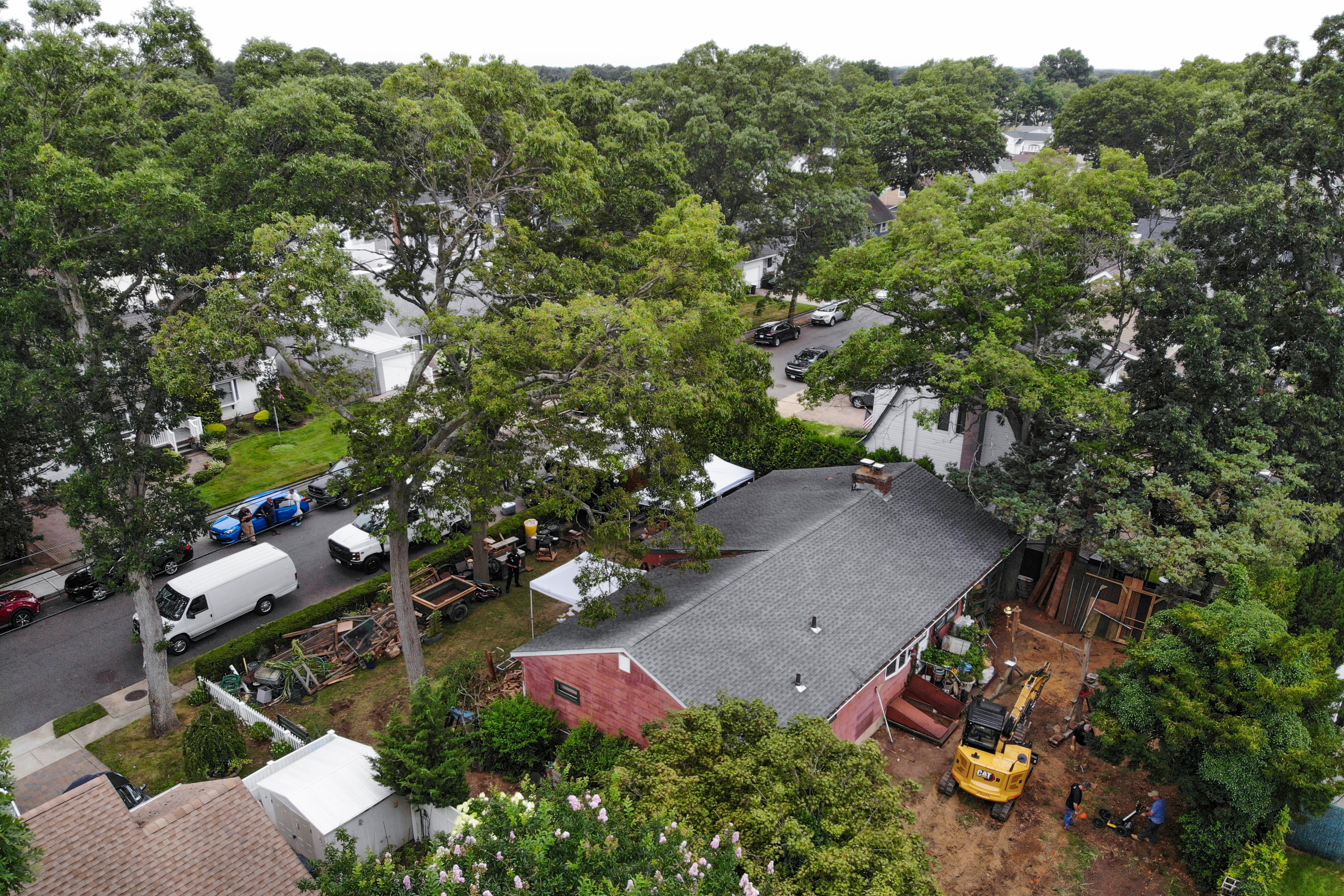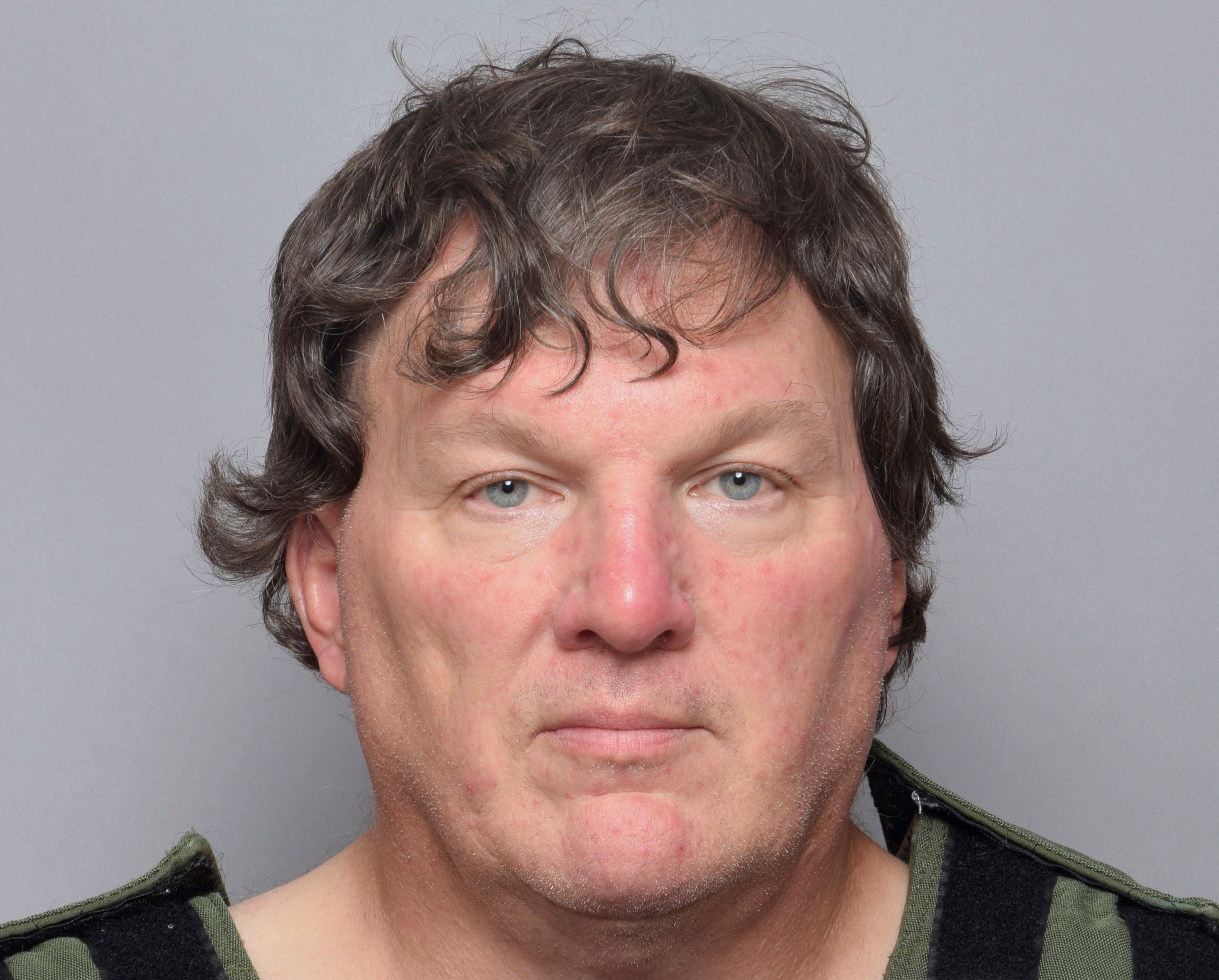Gilgo Beach witness questions why it took so long to make arrest after he gave tip that cracked case in 2010
‘I’ve been picturing his face for 13 years,’ Dave Schaller says
Rex Heuermann’s arrest came as a shock to nearly everyone in the Long Island community of Gilgo Beach – but not for a man who came face to face with the alleged murderer and had reported him to law enforcement.
For more than a decade, residents anxiously awaited new developments on a trail of murders that had gone cold, despite overwhelming evidence the slayings were the work of a serial killer. Most of the victims were sex workers in their 20s who went missing in 2009 and 2010 before their bodies were discovered wrapped in burlap along the stretch of a roadway.
The Suffolk County police department led an unsuccessful 13-year investigation into the case amid a litany of internal scandals, before announcing earlier this month that Mr Heuermann was in custody.
Police commissioner Rodney Harrison touted the work of a revamped task force as the reason behind the arrest, but largely glossed over the fact that the very detail that cracked the case was handed to authorities in the early stages of the probe.
Dave Schaller told the Associated Press in an exclusive interview that, by the time Mr Heuermann’s mugshot was plastered on every local and national news channel on 13 July, he was very familiar with the Frankenstein-like figure with an “empty gaze” he had long ago described to investigators.
In the winter of 2010, Mr Schaller told police that he had seen the man fleeing the house he shared with Amber Costello, whose body was among those found in Gilgo Beach.
“When they told me she was dead, he was the first person who jumped in my head,” Mr Schaller told the AP. “I’ve been picturing his face for 13 years.”
Mr Heuermann met with homicide detectives on multiple occasions during the initial years of the investigation. Two years after the bodies were found, Mr Schaller said he picked Mr Heuermann’s first-generation Chrysler Avalanche out of a line-up of photographs provided by the detectives.
“I gave them the exact description of the truck and the dude,” Mr Schaller, who said he was angered by the delay in investigating his tip, told the AP. “I mean come on, why didn’t they use that?”
Suffolk County district attorney Ray Tierney, who inherited the investigation when he took office in 2022, said the key to unravelling the case was the description of the truck, rediscovered by a state investigator after the launch of the new task force that took a fresh look at the evidence.
Mr Tierney told the AP he did not know why police had not run a search earlier, but suggested the tip may have been “lost within a sea of other tips and information”.
He stressed there were other elements that ultimately helped investigators arrest Heuermann, including new technology that helped match samples of DNA to the suspect.
“This was a dark cloud over the community,” former police commissioner Tim Sini, who later became the county’s district attorney. “When you have the police department and the district attorney’s office blocking the FBI, that does not engender trust in law enforcement.”

The arrest, Sini said, was the result of painstaking detective work that spanned multiple administrations and relied on a wide range of evidence.
“[However,] I wouldn’t call it a major success. The case should’ve been solved earlier,” he said.
“This was crucial information, and I don’t know why they didn’t share it,” Rob Trotta, a county legislator who worked as a Suffolk County police detective until 2013, also told the AP. “They made some serious blunders here.”
Two high-ranking officials who worked closely on the case and attended briefings between 2011 and 2013 told the AP they never heard Mr Schaller’s witness statement.
Mr Heuermann bought the pickup at a Chevrolet dealer on Long Island in 2002 and transferred ownership to his brother Craig in South Carolina in 2012.
Authorities seized the vehicle last week. A search warrant stated investigators were looking for other clues in the vehicle or at property the brothers owned in Chester County, such as DNA, fluids, fingerprints, phones and what they described as possible “trophies” that may have belonged to the victims.
Mr Heuermann is charged with the murders of Amber Costello, Melissa Barthelemy and Megan Waterman. He is also the prime suspect in the murder of Maureen Brainard-Barnes.

As law enforcement closed in on Mr Heuermann, they served more than 300 subpoenas and search warrants that uncovered cellphone records for burner phones used to arrange meetings with three of the “Gilgo Four” victims before they went missing.
Further analysis also allegedly linked Mr Heuermann to taunting calls made to family members of the victims, according to investigators. The calls were made from the Midtown Manhattan area, where the offices of Mr Heuerman’s architecture business are located.
Among the evidence linking Mr Heuermann to the murders was a hair found on burlap material used to wrap Waterman’s corpse, according to court documents. DNA analysis had not been possible in the early stages of the investigation, but new technology allowed testing.
A team surveilling Mr Heuermann collected a discarded pizza box that then confirmed a DNA match with the suspect on 12 June.

Records also showed several online accounts under fictitious names linked to Mr Heuermann were used for illegal activities. Mr Heuermann allegedly used those accounts and burner phones to contact women for prostitution services, as well as making chilling online searches.
The searches included sadistic, torture-related pornography, child pornography and disturbing content. Mr Heuermann is also accused of searching “why could law enforcement not trace the calls made by the long island serial killer,” “why hasn’t the long island serial killer been caught” and “new phone technology may be key to break in case”.
Mr Heuermann has pleaded not guilty to all the charges against him.
Authorities in New York, New Jersey, Connecticut, Las Vegas and South Carolina are looking into possible links between Mr Heuermann and unsolved cases.
The Associated Press contributed to this report



